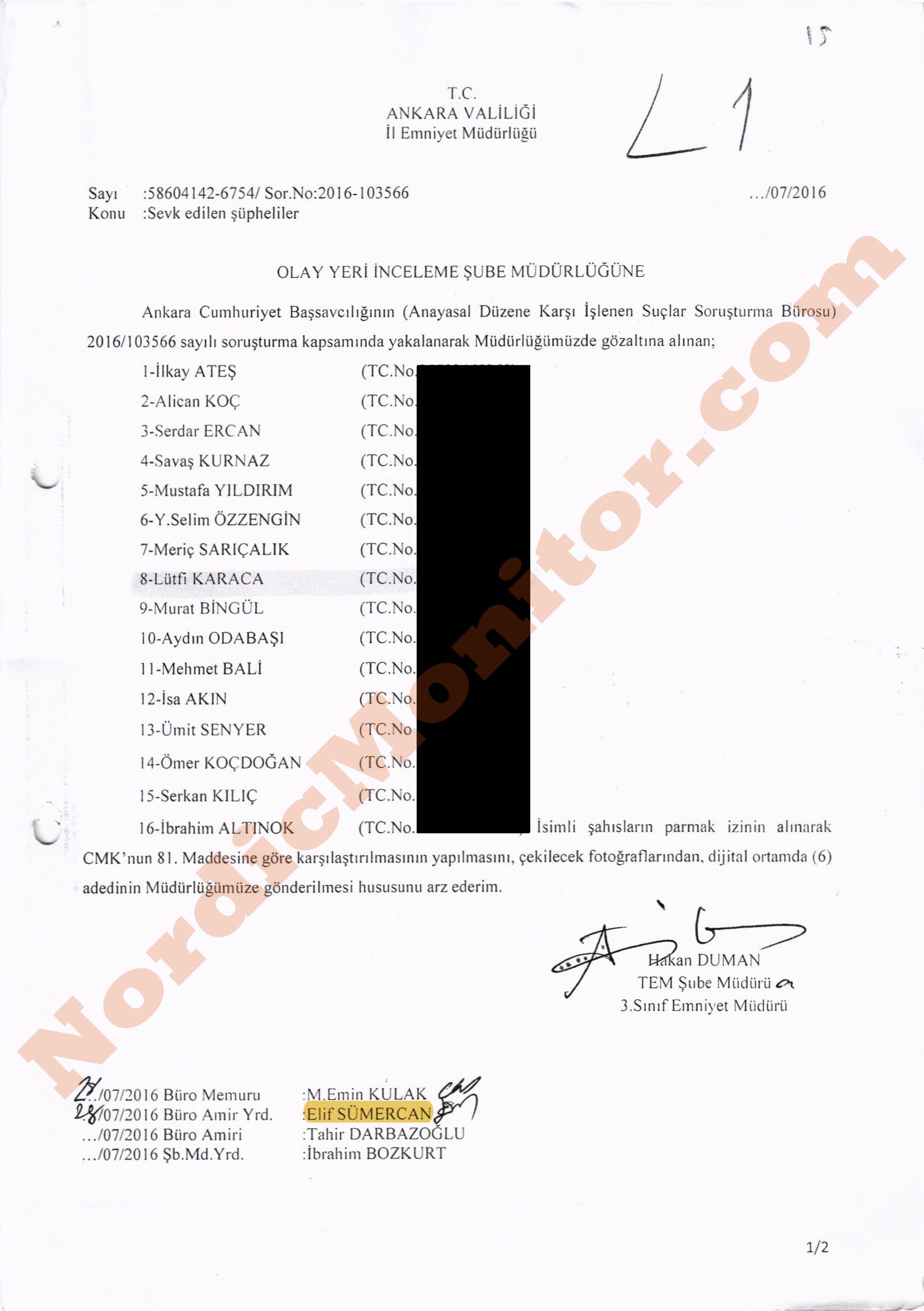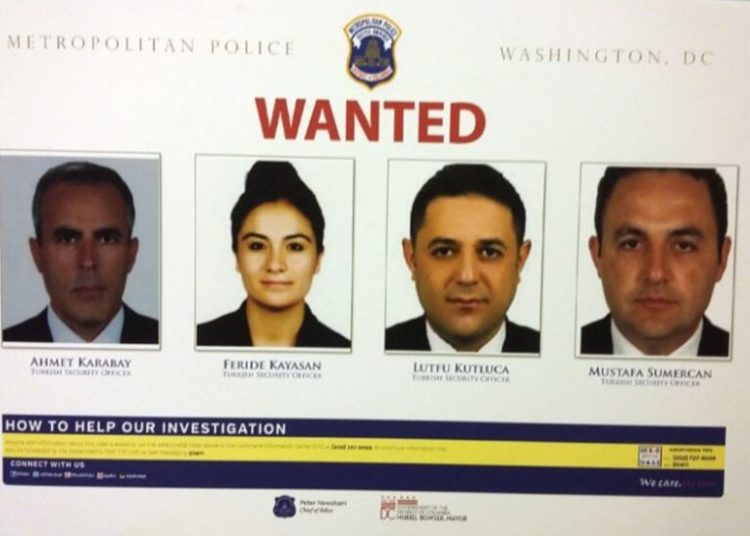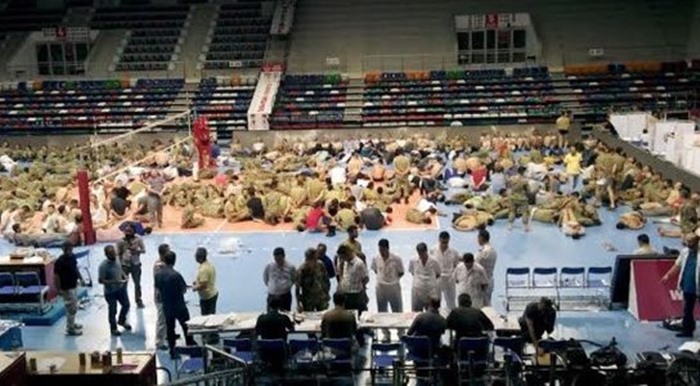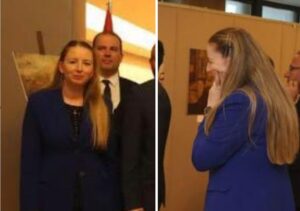Levent Kenez/Stockholm
A Turkish judge blocked access to dozens of websites and tweets including posts on Nordic Monitor’s Turkish Twitter account which refer to a story that mentions an ex-police officer who abused and ill-treated top-ranking generals at a detention site in Ankara in 2016.

Elif Uzun Sümercan, who now works for Turkey’s Culture and Tourism Ministry, applied to the Ankara 8th High Criminal Court to censor 88 URLs on March 16, 2021, claiming that her privacy had been violated.
Judge Erhan Karakaya issued his verdict on the same day under decision No. 2021/3087, agreeing with the plaintiff’s claim that her rights had been violated. An interesting note is that Nordic Monitor tweets that were blocked by the court are dated August 5, 2020 and have nothing to do with Sümercan, only several paragraphs from the testimony of officers who had been detained following a controversial coup attempt in 2016.
🔵KAN DONDURAN İFADELER (2.BÖLÜM)
-İŞKENCECİDEN AKIN ÖZTÜRK'E: SEN DAHA ÖLMEDİN Mİ O. ÇOCUĞU!
Nordic Monitor'ün ulaştığı ifadelerde Ankara gözaltı merkezlerinde işkence gören askerler beraber kaldıkları Orgeneral Akın Öztürk'ün uğradığı ağır işkencelerden de bahsediyor. pic.twitter.com/9PjH7rdZfI
— Nordic Monitor Türkçe (@NordicMonitorTR) August 5, 2020
Ironically, Judge Karakaya was one of the judges in the Akıncı military base trials who took no notice of torture claims raised by defendants and refused to take legal action against police officers including Sümercan.
Sümercan was identified as one of the most notorious torturers at an unofficial detention site in Ankara in 2016 by multiple victims who testified in court, naming her as one of key police officers who were engaged in brutal torture sessions for days. She was deputy chief of the Ankara Police Department’s counterterrorism unit at the time. Sümercan was later rewarded by the government and appointed as a department head at the Ministry of Culture and Tourism.
Sümercan was accused of beating Akın Öztürk, a senior member of the Supreme Military Council (YAŞ) and former Air Forces commander. Other victims who witnessed torture and mistreatment at the detention center said in court that police officers had to shout “Stop” to end her slapping of the general.
Evidence has emerged confirming that Öztürk had nothing to do with the failed coup and that he was branded as the leader of the putschists by the intelligence agency, MIT, when in fact during the coup events the general was at his daughter’s home, located some four or five kilometers from Akıncı Air Base, the alleged headquarters of the putschists. Öztürk was completely unaware of the plot unfolding and was playing with his grandchildren on the night of the abortive putsch.
Sümercan’s name and signature appeared on official documents tasking her with detaining suspects and accompanying them at detention centers in 2016.

Another Nordic Monitor story that angered Sümercan concerned her husband, Mustafa Sümercan, a police chief who is wanted for arrest by US authorities on multiple criminal charges. Nordic Monitor previously published a report stating that Mustafa Sümercan participated in clandestine operations with Turkish intelligence in Libya before President Recep Tayyip Erdoğan recruited him to his protective detail and that he was the husband of Elif Uzun Sümercan, who was accused of torture.

However, Mustafa Sümercan did nothing to refute the allegations against him nor did he apply to a court to censor Nordic Monitor’s story, unlike many Turkish government officials.
It has been documented that police officers and MİT agents engaged in mass torture and abuse at unofficial detention centers in 2016. Sports halls owned by government agencies and the police were used for verbal and physical torture on victims including threats to kill, rape and beat as well as strappado and dousing with ice-cold water.

Amnesty International called for independent monitors to be given immediate access to detainees in all facilities in the wake of the coup attempt, which included police headquarters, sports centers and courthouses, after collecting credible evidence that detainees were being subjected to beatings and torture, including rape, in official and unofficial detention centers in Turkey in 2016.
Turkey has been blocking the publication of a report by a Council of Europe committee that paid a fact-finding visit to Turkey in 2016 to investigate allegations of torture and ill-treatment in Turkish correctional facilities.












